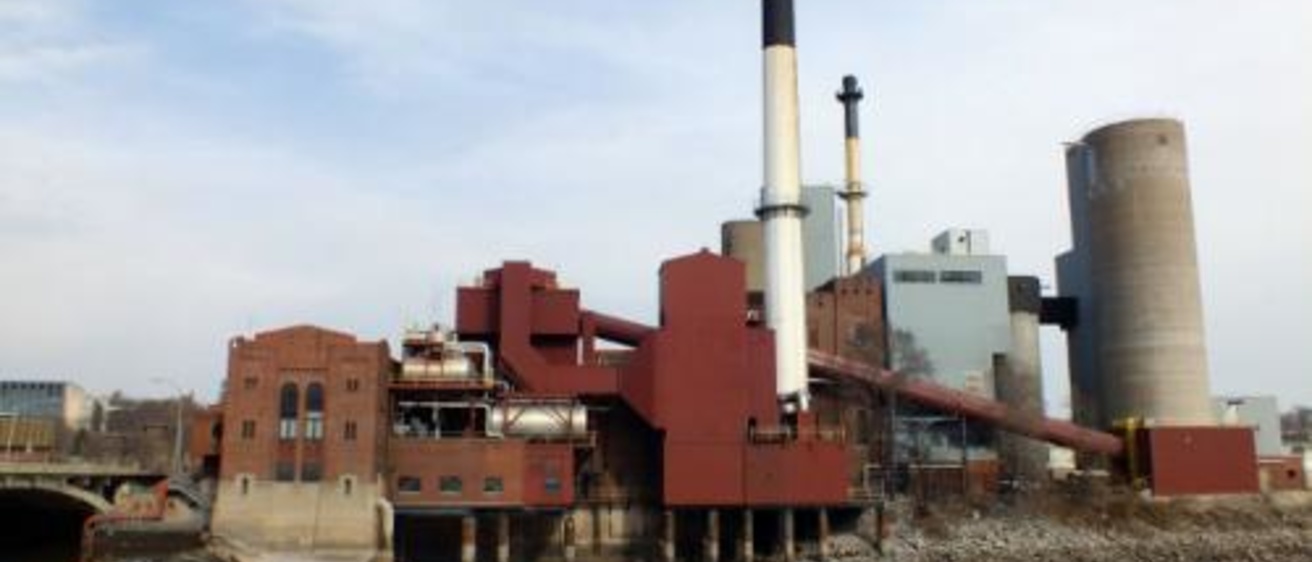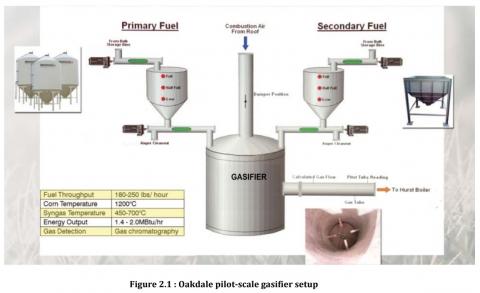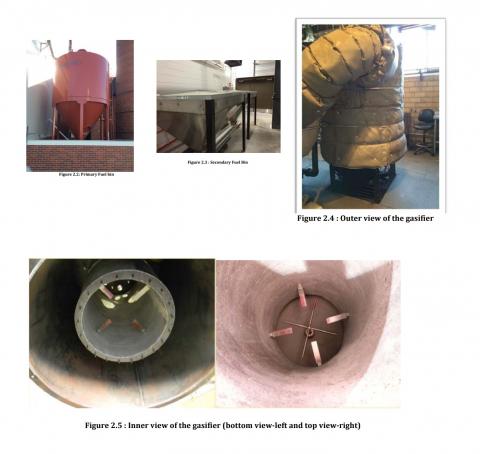
Breadcrumb
Helping Iowa Generate More Green Energy
Featured image: University of Iowa Power Plant. Image credit: Little Village Magazine
The University of Iowa has been recognized by the EPA for its role as a leader in green power generation and use. At the Ratner Research Labs, Graduate Student Tejasvi Sharma and his team of Mechanical Engineering undergraduates is helping push the envelope regarding green energy gasification research at the University of Iowa.
Gasification is a process that converts organic or fossil fuel based material to gases such as carbon monoxide, hydrogen and carbon dioxide at high temperatures using controlled amounts of oxygen. The outcome of gasification is clean “synthesis gas” (syngas), which can be directed into a boiler for electricity production, can be used as a heat source for hot water generation and bio char processing. Bio char is a soil amendment that can be used by farmers to grow crops. Gasification, a member of the renewable energy family, could help a country reduce its dependence on imported oil.
Originally from Cameroon, and a long-time Iowa resident, Sharma got his BS in Mechanical Engineering in 2013, and continued on for his Master's degree, which he received in 2015. For his Master's thesis, Sharma selected to work on a challenging problem, unique to Iowa: high availability of unused biomass from various crop products and residues, and also pesticide-tainted seed kernels, which can only be disposed of in a landfill or an incinerator. Specifically, he investigated a technique of converting low-energy density biomass into high-energy density syngas, which is a clean-burning fuel. Working with local Iowa businesses based in Tama and Des Moines, Sharma and his team investigated a downdraft gasification system, which showed high promise in not only efficiently converting biomass into syngas, but also producing soil-friendly biochar.


Many undergraduate and graduate students from the Ratner Research Lab have visited Itajuba, Brazil, where we have a working partnership for developing better gasification system with the Federal University of Itajuba.
Gasification can be used by developing countries to produce clean, renewable and affordable energy. This technology can also be helpful to countries affected by natural disasters, where it can serve as a stop-gap measure to produce much-needed power when traditional energy resources have been disrupted.
The Ratner Research Lab is also helping local Iowa businesses expand into emerging markets for biogasification, as far as Tanzania, Brazil and Belize.
Contributed by: Tejasvi Sharma, Gurjap Singh